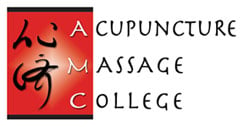Folic acid, or vitamin B9, can aid in the management of allergic reactions and allergy symptoms, according to a new study from the Johns Hopkins Center.
Folate occurs in food while folic acid is the synthetic form of this vitamin. Natural sources of folate include leafy vegetables, fruits, legumes, mushrooms, and cereals.
There are several health benefits of folic acid, as well as other B Vitamins, and it is an essential part of a heart healthy diet. A deficiency of this important vitamin can lead to a host of adverse health conditions, including heart disease.
Vitamin B9 plays an important role in facilitating many body processes, such as cell maintenance and repair, amino acid metabolism, DNA synthesis, and formation of red and white blood cells.
Prior evidence indicates that greater dietary intake of folate offers protection against the development of certain common cancers.
In the study, researchers reviewed medical data from 8,083 patients ages 2-85 who participated in the 2005-2006 National Health and Nutrition Examination Survey. During the study, serum folate levels and total IgE levels were measured. IgE, or immunoglobulin E, is a class of antibodies that mediates allergic reactions. The researchers also recorded respiratory and asthma symptoms.
Higher levels of folate were associated with lower IgE levels, less wheezing and a lower likelihood of developing asthma. People with the lowest folate levels had a 40 percent increased risk of wheezing, 30 percent increased risk of having elevated IgE levels, 31 percent increased risk of allergic symptoms, and a 16 percent higher risk of asthma compared to those with the highest levels of folate.
In addition to including folic acid in the diet, acupuncture can aid in the treatment of allergy symptoms. Acupuncture therapy minimizes allergic symptoms by stimulating various acupuncture points located on the wrists and around the sinuses.
Selection of these acupoints in treatment can reduce nasal secretion while increasing natural healing abilities and enhancing the flow of qi, or vital energy. Many patients benefit from reduced nasal congestion, discharge and itching following the first few acupuncture treatments.
For information about Acupuncture & Massage College’s Oriental Medicine and Massage Therapy programs call Joe Calareso, Admissions Director, at (305) 595-9500.

 (305) 595-9500
(305) 595-9500






